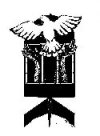Their trial began the afternoon of November 26, the same day local headlines announced that UNESCO had declared the Jabiluka mine a threat to the World Heritage-listed wilderness of Kakadu National Park. At a morning vigil outside the Northern Territories Department of Mines and Energy, defendants and their supporters remembered the victims of uranium from the atomic bombings of Nagasaki & Hiroshima, the nuclear tests at Maralinga, Muroroa, Kazakhstan, Nevada and elsewhere, endless nuclear accidents and the most recent victims - the children of Iraq suffering from the radioactive poisoning of depleted uranium armaments used by U.S. and British forces in 1991. A shrine to the children victims was left at the entrance to the Department.
They told the court how after damaging the dashboard and cutting wires on the excavator, they had spray-painted messages of memory and resistance on the equipment, then invited mine employees to join them in the disarmament process they had undertaken.
The pair of defendants first moved to have presiding Magistrate Loadman disqualify himself over remarks Lenthall had heard him make in open court last summer. He described participants in the blockade and action camp at Jabiluka as “selfish, arrogant and fascist.” The judge refused. Prosecution witnesses affirmed that police had been repeatedly informed that the Mirrar people, a small aboriginal band recognized as the traditional owners of the area, regard the mine as a threat to their lives, and had invited blockade participants to come and help their struggle to stop the imminent danger. Yet police and prosecutors also admitted no investigation of the threat posed by the mine had been made, nor action taken by officials to stop the threat, setting the stage for a defense of necessity.
The defendants were permitted to testify at length about experiences and knowledge that led them to their action on Nagasaki Day, August 9. Lenthall was even permitted to play David Bradbury’s Jabiluka video for the court, as it had significantly influenced her decision to act for disarmament.
After four days of testimony, Magistrate Loadman acquitted Lenthall of a fence-cutting charge that was not proven. At a subsequent hearing on December 14, he convicted Lenthall of trespass and one count of damage to the excavator, and O’Reilly of trespass and two counts of damage, one for the excavator, and one for the fence. Both were sentenced to the minimum 14 days in jail, which they had already served following their arrest. They were also given one month to jointly pay restitution and fines totaling $6,673. Both refused to pay, and face an additional sentence of 66 days in jail.
For more information, contact Jabiluka Ploughshares, 28 Baynes Street,
Highgate Hill, Brisbane, Qld, 4101, Australia.
www.freespeech.org/ploughshares
At the beginning of March, two aboriginal women, Christine Christophersen and Jacqui Katona, were jailed for 12 days because they refused to pay a fine for trespass last year at the Jabiluka site.
